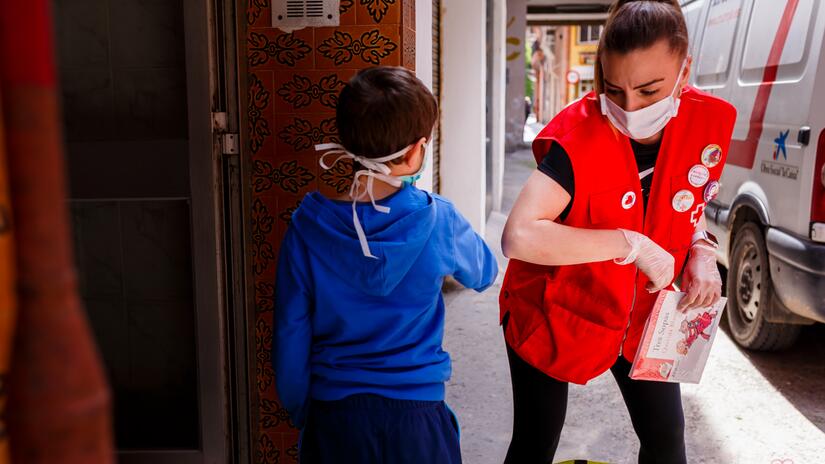Budapest/Geneva, 7 June 2021 – The mental health consequences of the COVID-19 pandemic will have far-reaching impacts for entire generations, warned the International Federation of Red Cross and Red Crescent Societies (IFRC).
Several studies by Red Cross and Red Crescent societies across Europe show an alarming pattern, which requires increased efforts to tackle inequity and assist those most in need.
Antónia de Barros Mota, head of Mental Health/Psychosocial Support for IFRC Europe, said:
“The mental health consequences of the COVID-19 pandemic are like invisible scars or hidden wounds. Young people and children are suffering stress, bereavement and loneliness, which can worsen as time passes. Their parents may have lost their jobs. Lockdowns and other restrictions continue to hamper their access to education, training and work.”
The disruption caused by the COVID-19 pandemic has reached a critical point recently.
Four university students took their own lives in a campus in southern France in the last quarter of 2020. French Red Cross set up a 24/7 rapid intervention team[i] to support those at risk. During the first six months they dealt with 11 students including eight who required immediate hospitalisation.
“With end of school year exams approaching, staff and volunteers are on high alert,” explained Sara Salinas, coordinator of the French Red Cross emergency service in the county.
A Spanish Red Cross study[ii] among families with young children revealed the majority now live in extreme poverty. Nearly 40 per cent are unemployed and three quarters cannot afford expenses such as glasses or hearing aids for their children. Most parents reported feeling worried or stressed, impacting their ability to emotionally support their children.
Research by Austrian Red Cross[iii] found sleep and eating disturbances among children had doubled, and that after the second lockdown in 2020, 16 per cent of children interviewed in North Tyrol (Austria) and South Tyrol (Italy) were likely to develop post-traumatic stress disorder (PTSD).
Refugees and migrant children are also significantly affected by the pandemic. A Turkish Red Crescent and IFRC study[iv] found a third were unable to access online school lessons. Another study with German Red Cross in Turkey showed that when forced to stay home children displayed more behavioural problems, and traumatic memories were triggered for some.
Europe has had more than 54.6 million COVID-19 cases and 1.1 million deaths to date[v] – a third of infections and fatalities worldwide. Declining trends are promising, but the pandemic’s effects could be long-lasting.
“Authorities and civil society organizations must scale up programmes and resources to help vulnerable youth and children – including basic livelihoods assistance and tailored mental health and psychosocial support. It is crucial to promote resilience at the individual level and within society as a whole,” de Barros Mota concluded.
Since the beginning of the pandemic, IFRC and Red Cross Red Crescent societies throughout Europe have provided mental health and psychosocial support to 1.8 million people.
[i] https://www.croix-rouge.fr/Actualite/Coronavirus-COVID-19/Un-dispositif-de-soutien-inedit-pour-les-etudiants-en-detresse-psychique-2487
[ii] https://www2.cruzroja.es/-/el-96-de-las-familias-con-hijos-de-0-a-6-anos-atendidas-por-cruz-roja-esta-en-riesgo-de-pobreza-y-exclusion-social
[iii] Silvia Exenberger; Anna Wenter; Christina Taferner; Nina Haid-Stecher; Maximilian Schickl; Barbara Juen; Kathrin Sevecke; Heidi Siller. "The experience of threat through Covid-19 in children: Gender as moderating factor" has been received by European Child & Adolescent Psychiatry. The submission id is: ECAP-D-21-00298, May 2021
[iv] https://media.ifrc.org/ifrc/wp-content/uploads/2020/05/Impact-of-COVID-19-on-Refugee-Populations-Benefitting-from-ESSN-Programme.pdf
[v] https://covid19.who.int/
Press release
Türkiye-Syria Earthquakes: IFRC highlights critical funding shortfall in recovery efforts
Türkiye-Syria Earthquakes: IFRC highlights critical funding shortfall in recovery efforts
| Press release

